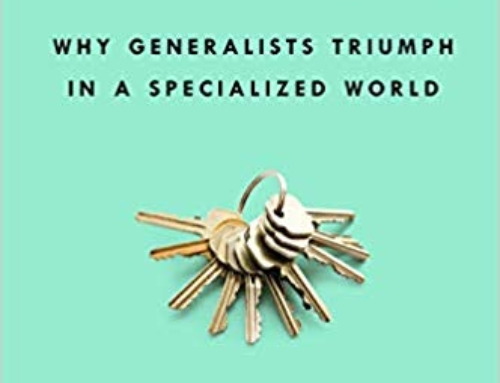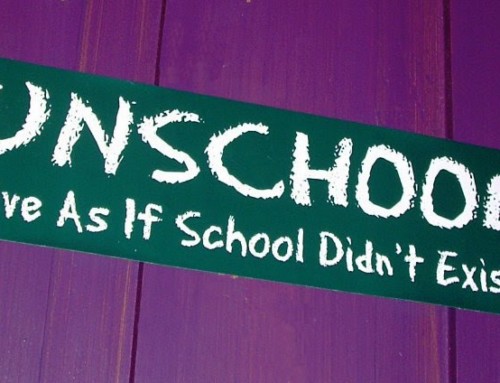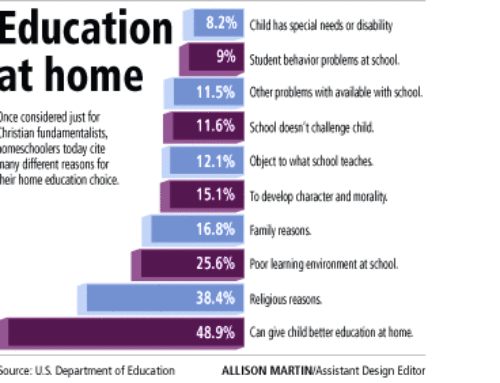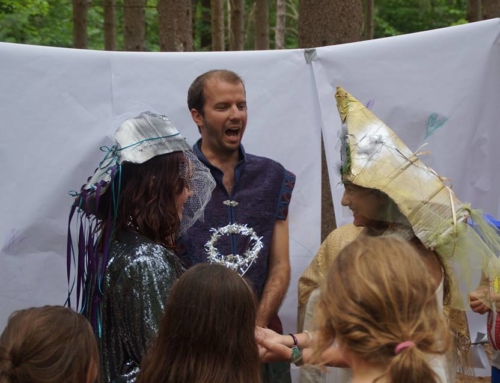
Public education was one of the best inventions of the modern era. All children given the same education regardless of sex, race, or money? Genius. And for a while it worked better than we might have imagined despite the SES disparities in individual school districts. Now we have today. Today things are seemingly going downhill and getting worse. Like a rock gathering moss as it plummets down the hill to the very bottom.
Families are looking to alternatives in droves. Homeschooling, unschooling, private schooling, religious schooling. You name it, there are parents trying to figure out how to make it work. What went wrong? Wasn’t public education the dream of many nations? Weren’t we supposed to bring up all of society by making sure all children had the basics of education?
Yet when you look at schools in many nations, we see the failure of students to even succeed at a basic level. We have to ask ourselves, “Why?” We’re fighting high drop our rates, illiteracy rates, and a more general problem that kids these days often don’t enjoy school at all. But we’ve decided that this should be “normal”. Hating school? Well, that’s just part of the world.
But then I think of the myriad children I’ve encountered in my homeschooling group. We have a large group of 6-9 year olds who are totally different in terms of what their interests are and yet all of them love learning. We have children gifted in Math. Children who are obsessed and beyond knowledgeable about French History. Children who focus solely on Math and English are doing Grade 4 curriculum in what would be Grade 1. They all love the learning they are doing. But here’s the catch: Though all of these students are ahead in many areas, they all have others they “struggle” in; in a regular school, they would never have the chance to move ahead in the areas they love nor be allowed to stay behind for a bit in other areas to focus on those they love.
And that’s key.
Kids often don’t follow this weird trajectory we have decided they should when it comes to learning. They may spend early years excelling in math because it interests them and then only later develop of love of books and reading, or vice versa. Some kids will develop interests at the same time, wanting to spend equal time on math and reading and science. This is how kids work. Heck, it’s how us adults work too when it comes to obtaining information and becoming learned.
Learning is not the same as schooling.
In schooling, especially in North America these days, we focus on set milestones children should be reaching together based entirely on age and completely ignoring the child’s interests in favour of set curriculums. We teach them the way we think is best, regardless of whether or not it works for a given child. And so children are schooled – for many hours a day – but are they learning? I would say some are, but many aren’t. It’s not fair to put this on teachers though, they’re stuck in a system that is, let’s face it, broken.
Where did we go wrong and what can we do to fix it?
I firmly believe the biggest mistake we made with modern education was getting rid of the multi-age classroom. I think this one change could help so many of the problems we face today with modern education.
Forget segregating kids by age, each class should have a large enough mix of ages so that children can work at their level for a given topic. One child might at a grade 5 math level, but at grade 3 in reading. That’s okay. Given the right environment and ridding ourselves of the idea that a child has to be at equal levels across all subjects because they are at a certain age, most children will thrive. Because let’s face it, assuming all children should be at the same level because they’re born in the same year is as asinine as lowering the standards so that all children “meet” the bare minimum.
These multi-age settings also improve social skills and increase empathic behaviour. Children learn to socialize with those older and younger. They learn how to care for younger children (and we know that caring for younger children lowers bullying and increases empathic behaviour and social skills). Games involve everyone instead of same-age peers and for those students who may be “socially immature” there is no stigma anymore because you can play with those you are most comfortable with.
I’m not a teacher so I can’t speak to how it would change the way teachers approach teaching, but they managed to do it for many years, at a time when public education thrived, and I think they could be up to the task again. I imagine it means a lot more one-on-one with students to see where they’re at, and also structuring learning so that children can learn at their level doing the same tasks. A science experiment teaches different things to different children of different levels, but they all get something out of it and will get out what they are developmentally ready to learn.
I don’t know that we’ll ever see this type of overhaul to go back to where we were. I hope we do though because I feel so strongly that too many children are missing out on learning with the way our current school system is.






I know many teachers. They’re great people who work very hard and are confined by rules that teachers did not create in a system that only has blame for them.
We are in a ‘good’ school system, based on where we live. We still plan on home schooling. You hit upon the points as to why – we can move past grade levels and work on what needs worked on, at whatever level that is, without being hung up on age. We can foster a love of learning, instead of falling into a hate cycle. Sure, he may not love everything he has to learn, but what he does love can be allowed to shine and keep the spark alive through the more tedious stuff. The system is broken and, while I understand those who say we ought to keep inside the system to fix it, I’m not willing to sacrifice his future in order to try to fix the system. I’d rather vote and keep involved while taking care of his needs first. That is my responsibility.
I hear you on the idea of not sacrificing our own children. I feel the same. I will vote to change and heck I’ll get involved in the council if they’ll vote me in, but I won’t sacrifice my daughter’s education for reform. She has to be my first responsibility.
The local public school where I am is a multi-age classroom, purely because of size. We have heard good things about it (still a few years away from experiencing it ourselves!). Interesting that what has been ‘forced’ on the school for practical reasons may in fact be the better way to do it.
My husband grew up with the small, multi-age school because of the small town he grew up in. Has brilliant memories of it and we talk regularly about how we wish our kids had it as a standard!!! I’m jealous!!!
Have you read “Understood Betsy”? It’s a children’s book that I love. The multi-age classroom at the “backward” country schoolhouse turns out to be far superior to the “modern” city school … it’s a great book for so many reasons, actually. I may need to re-read it tonight … (it’s a free Kindle download on Amazon, btw, as it’s in public domain).
Must download tonight…
Wow, THANK you for this one, Liz! I read this book as a child and occasionally thought back to it as something I’d love to re-read, but couldn’t remember the title or author, so I’m thrilled to run across the details here! I shall look forward to rereading this!
I guess the way I see schooling is that you go to an public school to learn the basics, and then at home as parents its our responsibility to enrich and ensure that our children are learning above and beyond that. I grew up in an academic household – both my father and step father were academics at a university and my mother also worked on campus. I learnt many things outside the school room because learning was important in my family. When I struggled with maths, my dad used to sit with me in the school holidays each day for half an hour going over things until it clicked. When we had family time and outings when we were interested in things facts and data was always thrown in to increase the learning potential. This wasn’t a rigid structure but I learnt a lot more about history and anthropology via my father above what I did in school but I in no way felt that the school system I went through wasn’t a useful tool. By going to school I learnt how to handle myself in social situations, I learnt how to deal with peer pressure, distractions in a classroom from friends and idiots and I also got to learn about deadlines and completely essays and homework. I don’t feel I could have got this had I been home schooled, not in the same manner I did at school and I feel that these skills and friendships set me up very well in life. Could I have been more academically brighter had I stayed at home and been taught by my parents? Yes I think I would have, but I guess I don’t see this as the only valuable thing you learn at school. I am also lucky that I live in an area within Australia with very very good public schools so perhaps this has made a difference to my thought process too when deciding that my children will attend public school.
Social situations in a school are completely unnatural. At no other point in your life will you ever again be stuck in a room with thirty other people your age and expected to learn how to socialize with them with very little adult help. Even a university classroom or a prison has a mixed-age population in it. And the sort of age segregation they do in most public schools now leads to ageism and a complete lack of confidence in dealing with people who are significantly older or younger than yourself. I’m convinced that’s where our current trends of warehousing children and the elderly come from.
Peer pressure in the classroom is also nothing like the real world, not that you don’t get a kind of social pressure in the real world, but it’s not all from a group of people your own age, and I hope you noticed that while schools attempt to teach kids nowadays about resisting peer pressure, it’s mostly pressure to do things widely considered “antisocial” such as drinking alcohol or taking drugs or having underaged sex. I don’t recall, when I was in, being taught about the other kinds of social pressure one encounters in the real world that bamboozle us into believing harmful political “truisms” or buying things we don’t need. Those are far more damaging in the long run.
I was public school all the way from K to 12 and I’m still terrible at deadlines. If you have a natural knack for executive functioning, good for you. If you don’t, you need to be taught it, and not all schools do. Those which *attempt* to teach executive functioning are not always good at it. It’s a complete crap shoot and there is no easy way for parents to suss out ahead of time which schools teach worthwhile skills and which don’t. Even in a good school, the teachers are not all on the same page.
I am planning on homeschooling my kids (I only have one so far, and he’s only 18 months old, so “formal” schooling is a ways off yet), or more accurately, unschooling, because there are just so many things wrong with the public school system, and even with many private schools. Have you ever heard of the concept of a Sudbury school? I think you would be very interested in it. Recently, I read a book called “Free to Learn” by Peter Gray, and he focused a lot on Sudbury Valley School in Massachusetts, which is founded on an idea that a number of schools around the country (around the world, actually) have emulated. If, by the time my kids are “school-age,” I live somewhere where there is a Sudbury school (my husband is military, so there’s no telling where we’ll be), I will gladly send them there instead of having them learn at home. http://www.sudval.org/
We are planning to unschool our kid. Hes 23 months old rigtht now but we are certain we will do it.
My husband has a Phd hes a famous scientific in his area and he is 100% sure it is the best for any kid whose parents are in the mindset and with the possibiliy (time, confidence, willing to devote time for him).
I recommend the reading of John Taylor Gatto’s view about why any type of school that is somehow rigid (bells, kids confined in rooms without being able to move , forced not to question the authority etc) is not in the best interest of our child.
First one is forced to be obedient and compete with others (grades) at school..later in life you discover that to suceed you must be connected with yourself, know your passion, have strong wll, believe in yourself, be able to learn witgout soneone having to teach you, thibk outsidethe box (you were put in while being a child). avoid limiting beliefs (adquired being a child at school or with your family) work intelligently instead or working just hard.. etc You find yourself unlearning to be able to learn again to connect with yourself and others (sincerely
I am trained as a teacher, my ex is a teacher and I come from a family full of teachers and I fully agree that there is a heck of a lot wrong with the education system. The fact of the matter is the system that almost all schools run on was developed in the industrial revolution, to meet the needs of the workforce and greater society at the time.
Society has moved on, but our school system hasn’t.
We got taught all sorts of things at university about how the research proves modern children learn best, how anyone child or adult learns best, about the importance of differentiated curriculum, hands on learning, learning styles, teaching one “subject” through annother, investigative learning, team projects, team teaching, peer teaching etc etc etc…….but once you step through the doors of any classroom, so much of that just gets completly stifled by the realities of 26-32 kids of the same age but completely differing abilities and intrestes, any number of whom have social, behavioural or learing difficulties, and a state or nationally mandated curriculum that determines what has to be covered in each year and when (and often how) progress must be assessed or determined. governments that are obessesd with standardised testing and judging a teacher’s merits by test scores, and classrooms and schools that are built around the industrial model, and kids who are compeletly disenfranchised with school because unless they happen to fit into the exact middle of the bell curve in every subject, they are either bored or struggling.
Anyway. I recently read “The one World Schoolhouse” which makes many of the same points about the advantage of multi age classrooms. It was a very i teresting book
Multi-age classrooms sound like they might have interesting advantages, but I just wanted to point out that multi-age classrooms aren’t necessary to have children working at different levels. In my daughter’s class (for 5 – 6-year-olds) there are different ability levels for maths and literacy (worked out independently of each other), and for projects in science or other subjects it’s quite feasible to have different children working at different levels.
[…] של משחק רב-גילאים פורטו במקומות רבים באינטרנט (כמו באתר ממנו תורגם הפוסט הזה, וגם במאמר הנפלא הזה של פיטר גריי ב Psychology Today), וממש […]
Montessori education actually already addresses and resolves all of these concerns. We in the Montessori field often get frustrated as discussion in the education field shifts to “but how?” when, for over a hundred years, we’ve had the answers to how to effectively do individualized learning in multi-age classroom settings. Sadly, when Montessori came to the US in the mid 20th century, we rejected her ideas. We took a different route that has led to the system you see today. But the corrections to the system you speak of (and I wholeheartedly agree), they are being done!
[…] fascinating article by Dr. Tracy Cassels of “Evolutionary Parenting” confronts problems in public education […]
Tracy, I’m interested in your thoughts/response on the comment on Montessori, just above.
From what I know of Montessori, it’s hard to respond because in the truest sense there’s a lot there, but there are also things in Montessori that I wouldn’t subscribe to. Of course, there’s also huge variability in how it’s implemented and that can be perhaps the largest problem of all. There are others that do multi-age classrooms (think Waldorf) and they all have pros and cons. I don’t think any one system addresses ALL the concerns, but they do address some and so it’s up to individual families to find what they feel works for them and what are the biggest issues for them.